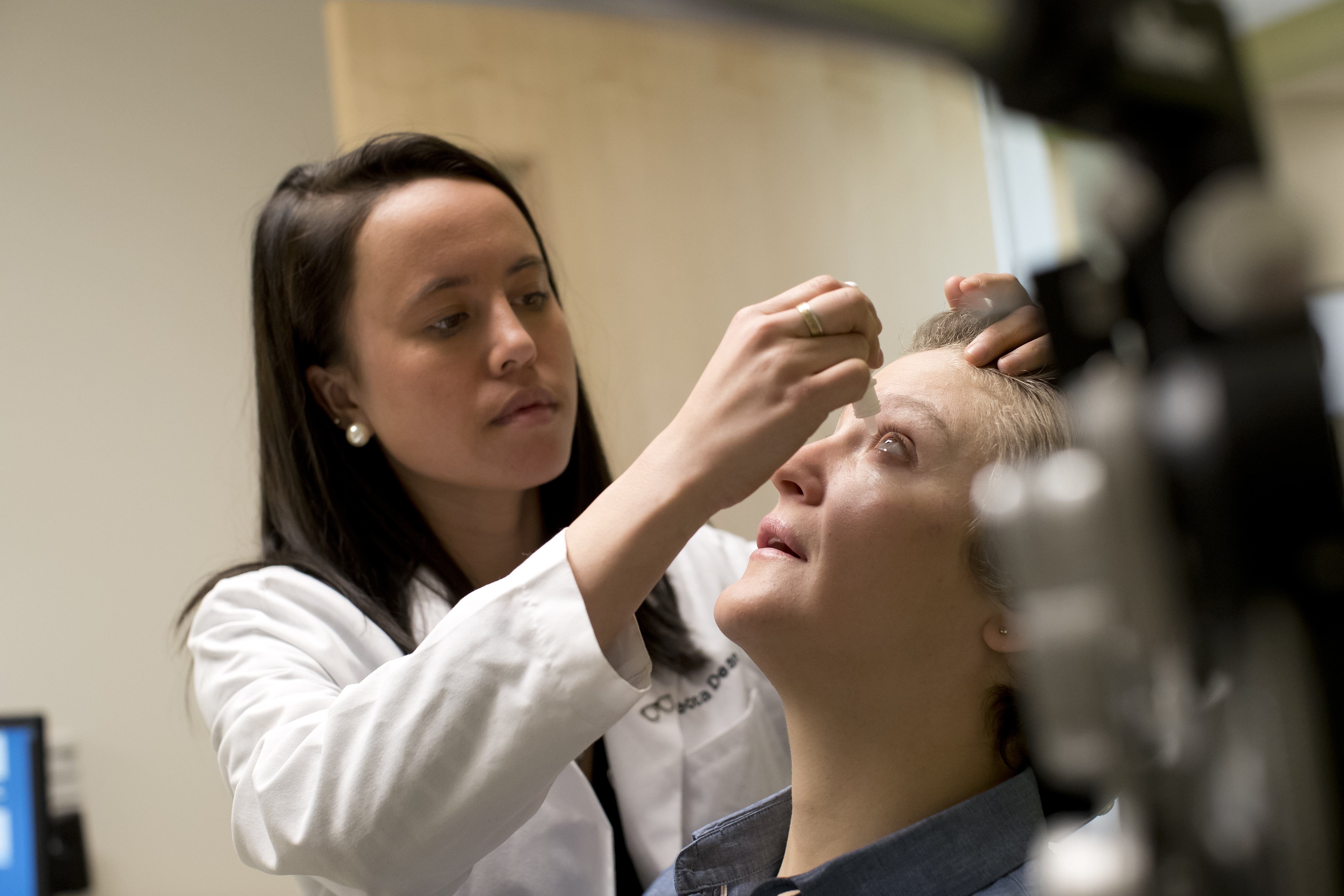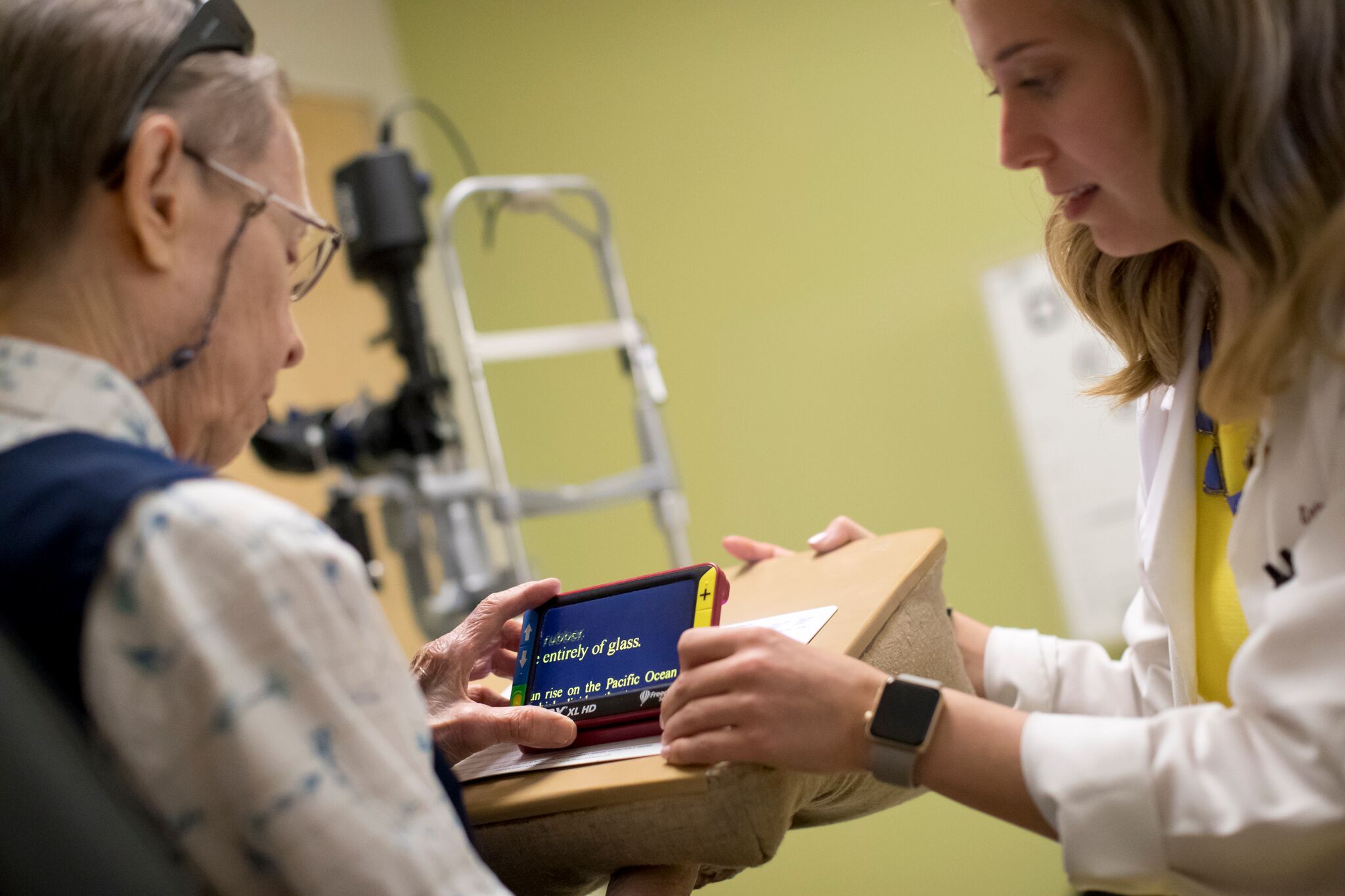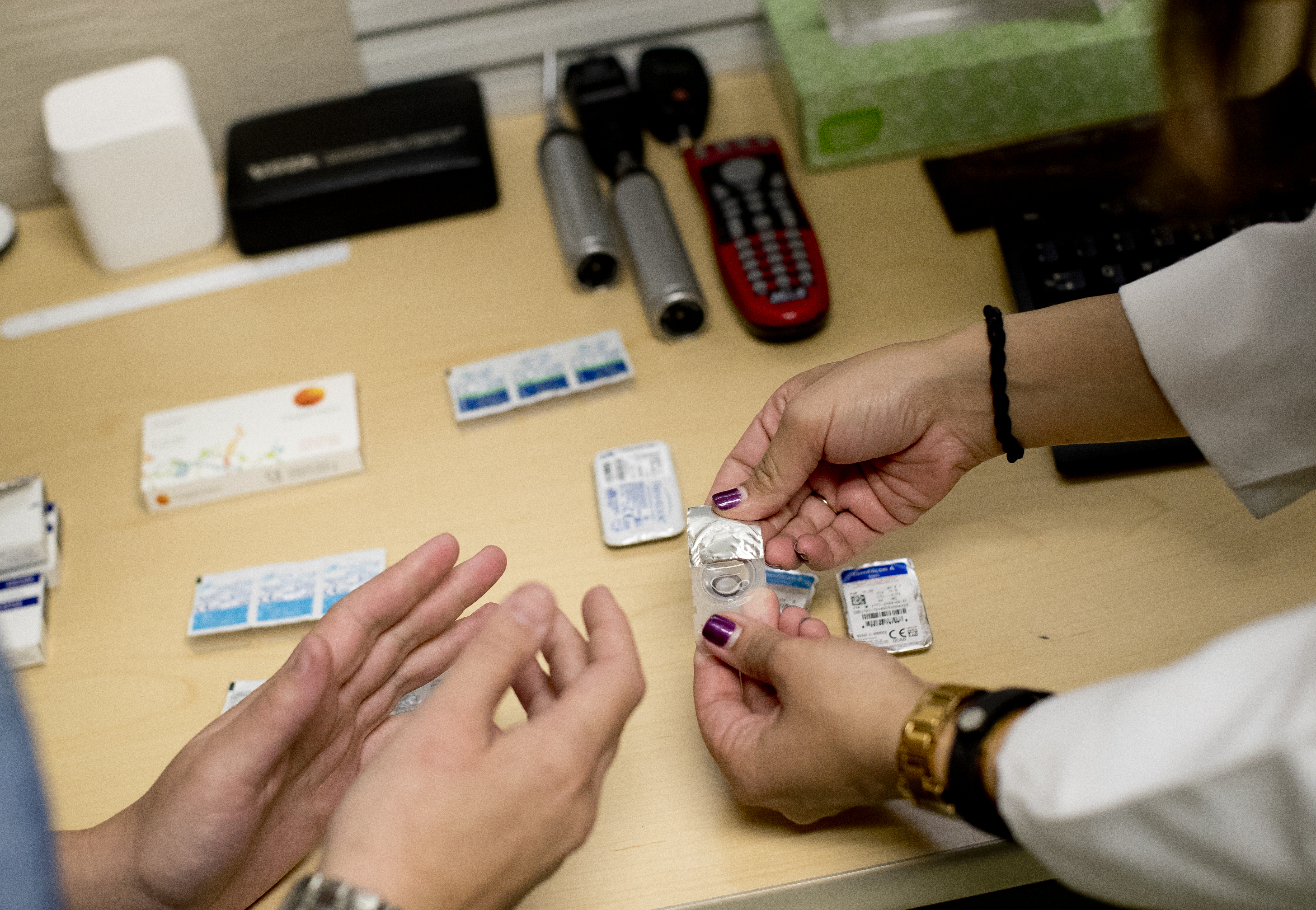From Student to Doctor: Life and Learning at The Eye Institute (Part 2)

The Eye Institute (TEI), the main clinical facility of the Pennsylvania College of Optometry (PCO), Drexel University, offers immersive on-campus residency programs that provide advanced clinical training across a variety of specialties. With a strong emphasis on patient-centered care, interdisciplinary collaboration, and mentorship, TEI’s residencies are designed to support new doctors as they transition from student to clinician. Residents gain hands-on experience with complex cases, participate in teaching and community outreach, and work alongside leading optometric professionals—all in the heart of Philadelphia.
This is the second of a three-part Q&A series where we hear directly from TEI residents as they share what motivated them to pursue residency, why they chose their specific program or clinical focus, and how they are adjusting to life in Philadelphia. Their insights highlight the depth of TEI’s training and the unique experiences that shape their professional and personal journeys here at PCO, TEI and in Philadelphia.
Residency Program and Clinical Focus
Q: Why did you choose this specific residency program or specialty?
 Amma Dwomoh, OD ‘25 (1st Year Neuro-Ophthalmic Disease) - Pennsylvania College of Optometry:
Amma Dwomoh, OD ‘25 (1st Year Neuro-Ophthalmic Disease) - Pennsylvania College of Optometry:
“I was drawn to the neuro-ophthalmic disease program because of its strong reputation for managing complex clinical cases. As a student at PCO, I had the opportunity to rotate here in my fourth year, and the experience really challenged me to think more critically and deepened my passion for this profession. It solidified my desire to return for a residency. Additionally, being at a teaching institute where I can walk down the hallway and have the different specialties is a definite plus.”
Aidan Go, OD (Primary Care/Ocular Disease) - The Ohio State University College of Optometry:
“The PCO Ocular Disease Residency stood out for several reasons. First, I wanted a program with a cohort of residents. I enjoy the camaraderie of having other residents, and the ability to bounce ideas off each other helps me learn. Plus, having others in the same boat has made the adjustment into residency easier. Second, working with students is something I wanted to incorporate. My attendings played a big role in making optometry school a fun and positive experience, so I hope to do the same for others. Third, Philadelphia's large city population brings countless learning experiences from an optometry standpoint. In my first few weeks, I have already seen diseases that I did not see during my four years of optometry school. After seeing patients, I'm excited to get out and explore the city life. ”
Elle Cornman, OD ‘25 (Low Vision Rehabilitation) - Pennsylvania College of Optometry:
“I rotated through Feinbloom (Vision Rehabilitation Center, housed at TEI) during my externship year (at PCO) and absolutely loved it! The complexity and rarity of the cases keeps my mind engaged, and the ability to help others achieve their goals is incredibly rewarding. Not to mention, the low vision staff here is just an awesome group of humans.”
Q: Are there particular clinical skills or patient populations you’re hoping to focus on during your residency?
 Dr. Dwomoh:
Dr. Dwomoh:
“I’m looking to become more fluent in managing patients with complex neuro-ophthalmic conditions. I’m also excited to work with a wide range of age groups and socioeconomic backgrounds, which I know will bring an invaluable perspective and depth to my clinical experience.”
Jon Kuznia, OD (Contact Lens and Anterior Segment) – SUNY College of Optometry:
“During optometry school, I had the opportunity to rotate through Bellevue Hospital, a large public hospital in New York City that serves many uninsured, medically complex patients. It was an incredible experience—not only for my clinical development, but also for helping me grow my ability to connect with patients. I found it deeply rewarding to care for a population that often faces significant barriers to healthcare. The patient population at TEI is very similar in many ways, and I look forward to continuing that kind of meaningful work during residency.”
Q: Are you interested in community outreach or volunteering opportunities during your residency?
Dr. Dwomoh:
“Absolutely! Outreach is a key part of healthcare. I’d love to be involved in initiatives focused on preventive eye care and extending services to underserved communities.”